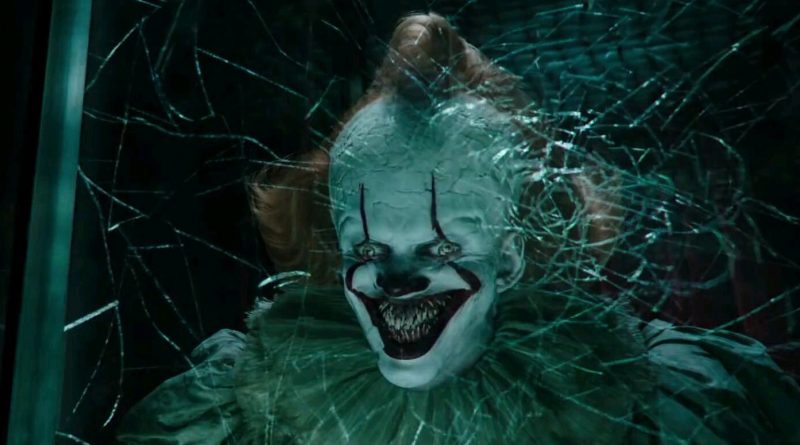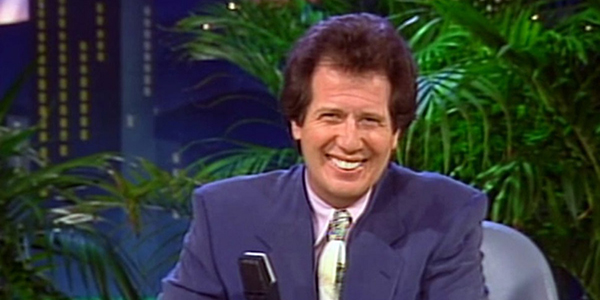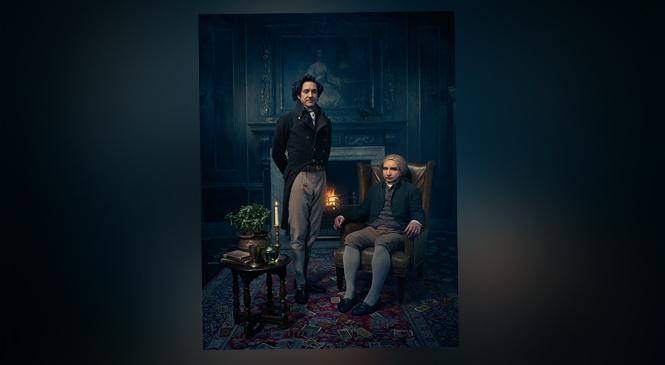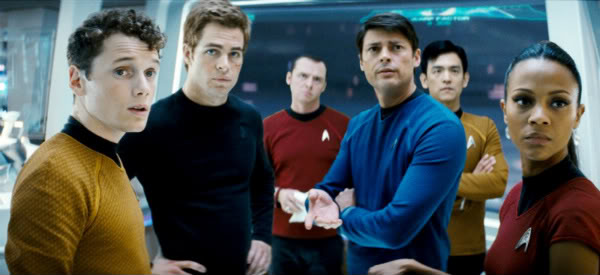Time is IT: CHAPTER TWO’s Fatal Flaw

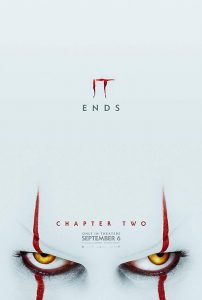 It Chapter Two (2019)
It Chapter Two (2019)
Directed by Andy Muschietti
Screenplay by Gary Dauberman
Based on the novel by Stephen King
Produced by Roy Lee, Dan Lin, Barbara Muschietti, Jason Fuchs
Rated R, 2h 49m
The problem with It: Chapter Two is that it’s too short.
Yes, that does seem like an odd thing to say about a film that is nearly three hours, and a sequel to a film that was over two hours long. But as I consider how much of the weaknesses of Chapter Two lie in an episodic nature that returns to the younger versions of the characters at the expense of the older, it’s not the length of the film that is the actual issue, as much as how that time is used.
It’s understandable to a point, of course. Children threatened by an eldritch horror is going to have a greater visceral impact than that same horror facing off against adults, if only because of the fact that children are more vulnerable. It: Chapter One is an excellent horror film for a lot of reasons – a great cast of young actors and a truly masterful adaptation of Stephen King’s novel at the core of them – but one of the most critical of those is that we spent time with the Losers. We got to know them enough that when Pennywise turns It’s attentions to them, we cared about what would happen to them.
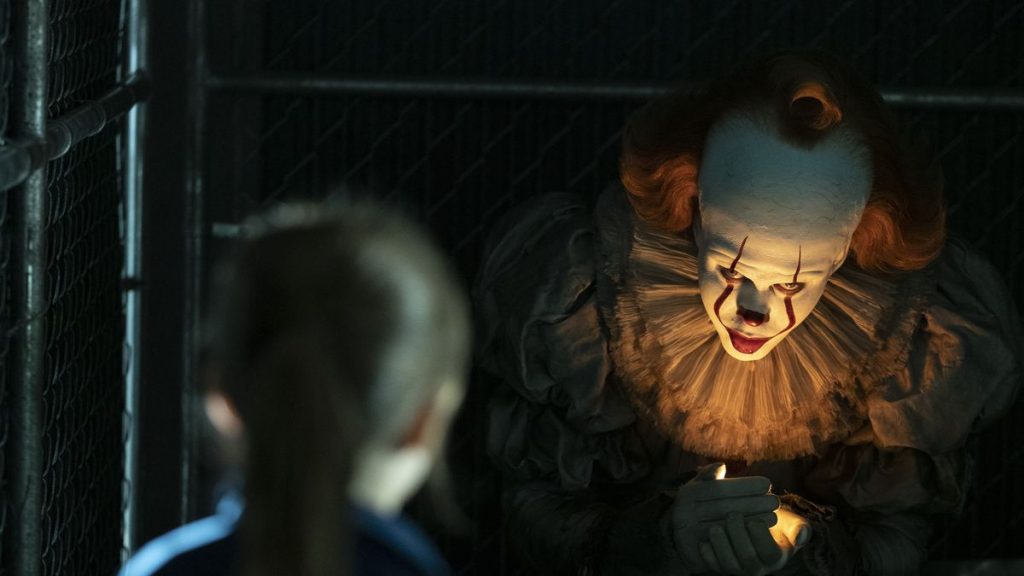
Oh, there are missed opportunities and some questionable choices to be found there, too, without question, most notably in how much Chosen Jacobs’ Mike Hanlon is served poorly by the script. But overall, the excellent performances by Jacobs, Jaeden Martell, Finn Wolfhard, Sophia Lillis, Jeremy Ray Taylor, Jack Dylan Grazer and Wyatt Oleff give us an engaging and relatable group of brave young people who are true friends, and use that friendship – that love they have for each other – to defeat a monster beyond their comprehension.
The decision to ignore some of the more… questionable scenes from the book was also a plus.
But It: Chapter One tells a single story. It awakes, takes the form of Pennywise and terrorizes Derry. The Losers come together, forge their friendships, and defeat the monster. There is a beginning, a middle and an end. Even with the clear signs that there is more story yet to come, if there was no Chapter Two, the first film could have stood on its own as a story, and been justifiably praised for being a genuinely scary horror film.
It: Chapter Two, however, isn’t a single story, at least not in the same way. If it had just been about the adult Losers coming back to Derry and facing their fears and Pennywise again, then those nearly three hours might have been truly gripping. That’s not actually what we get though, because a significant chunk of that run-time involves returning to the younger versions of the characters.
One some levels, this is completely understandable. The younger cast is excellent and the flashbacks are framed as the memories of their older selves. It does make sense to have those scenes. But it also significantly cuts into the time the audience spends with the adult versions of the characters, and that’s where Chapter Two really shows its flaws, and loses a lot of the potential to be truly scary.
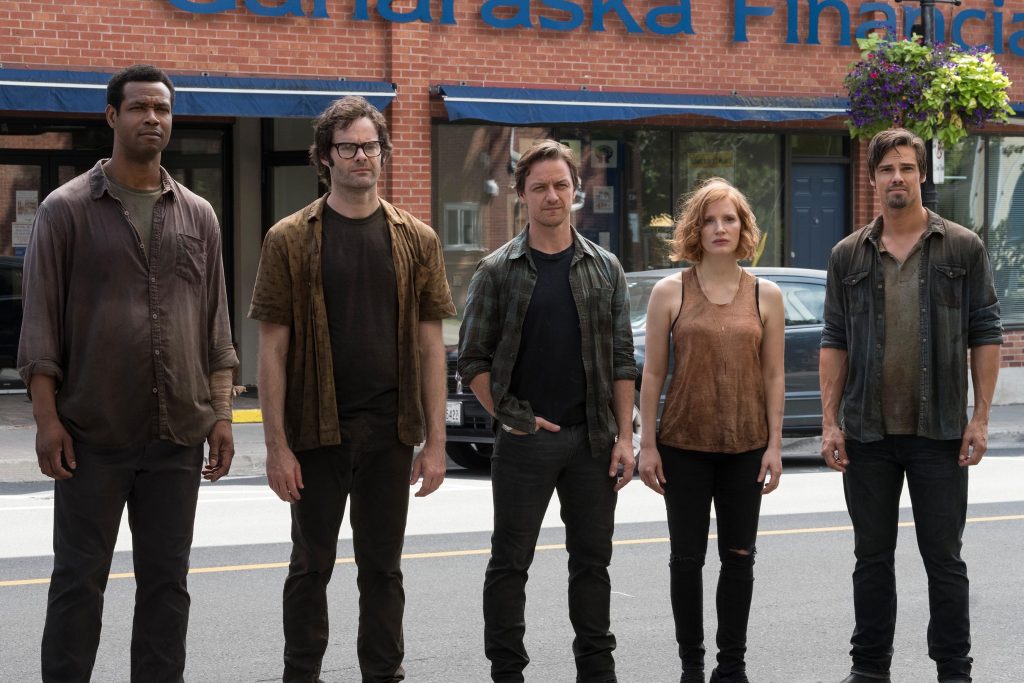
Now, I’m not entirely sure that we needed some of the scenes and characters that were cut from the story, but maybe we did.
In the book, both Bill’s wife Audra and Bev’s husband Tom follow their spouses to Derry, and while neither is critical to the plot, those characters help shape who the adults Bill (James McAvoy) and Beverly (Jessica Chastain) have become. That kiss we get between Bill and Bev? That should have the weight of Bill actually being a happily married man whose childhood love has overcome him, but since Audra gets a couple of moments of screen-time, there’s just no power there. We don’t even get to see her at the end of the film, let alone the clear and true love Bill has for her that saves her in the novel. And while Tom is essentially the “a-hole victim” trope made flesh, the tragic fact that Beverly has married a man who is a reflection of her own abusive father shows how much the lost memories of the Losers’ childhood battle have done them real damage as adults.
Stan Uris (Andy Bean) comes across the worst here though, primarily through a well-intentioned, but ultimately unsuccessful attempt to make his suicide anything other than the terror of facing It again simply being too much. The idea that he kills himself to make it possible for the others to defeat It doesn’t make any actual sense, and lessens the impact of the fear that drives him to take his own life. More time spent with him and his wife – showing that he really did find some happiness as an adult – would have made losing his character far more powerful.
As for performances, well, the younger cast is great here as they were in the first film, digitally de-aged or not. Bill Skarsgård continues to make Pennywise pure nightmare-fuel, especially in the scenes where it is all his own physicality and acting, and not the digitally created versions. The effects in the film are somewhat dodgy at times, but Skarsgård’s performance is always a scary joy to watch.
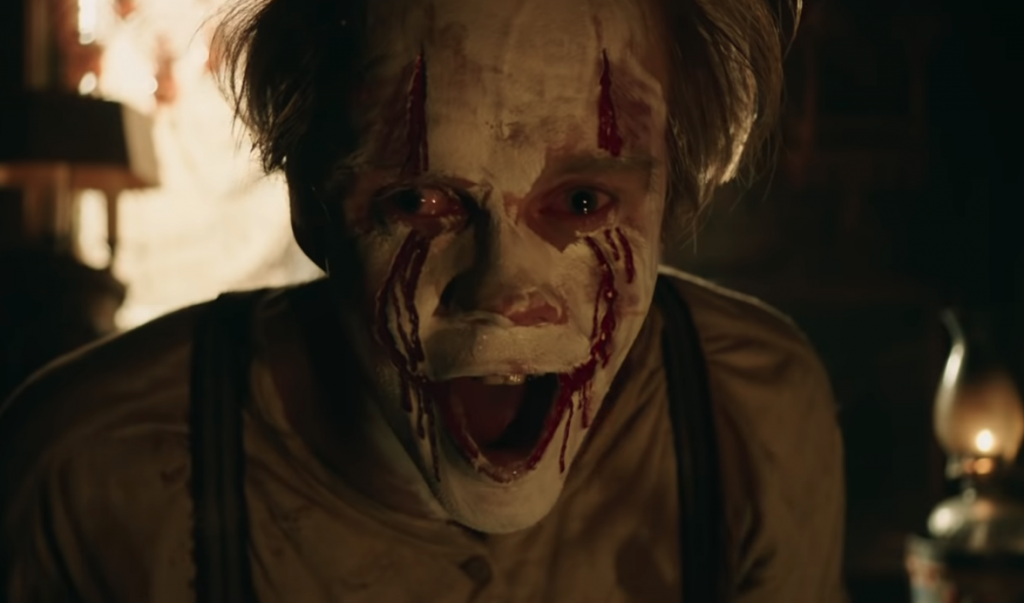
Much has been written and discussed praising Bill Hader’s performance as Richie, and it is indeed well-deserved. Hader makes Richie a three-dimensional character in a way that many of his equally talented costars simply aren’t given the opportunity to. James Ransone delivers a truly wonderful performance as Eddie, but – like Bill, Beverly and Stan – we don’t spend enough time with his life outside of Derry, and the way his life was shaped by those childhood horrors. He and Hader create a wonderful relationship between Richie and Eddie, both joyously funny and terribly sad. They feel like friends, even leaving aside Richie’s romantic feelings for Eddie, as well handled as that is.
Isiah Mustafa has a lot more to do as the adult Mike than Jacobs did as his younger self, but still gets less screen-time than his character and his performance deserves, and Jay Ryan is excellent as the adult Ben, but he needs more time. James McEvoy and Jessica Chastain are wonderful as Bill and Beverly, and yet they, too – as big as stars as they are – simply aren’t given enough time to give their characters the depth their younger counterparts get. It costs the film the tension and dread of Chapter One, even if, in the end, It: Chapter Two is still worth watching, if only for the performances of its cast. They really are excellent, but they simply aren’t given enough time to allow the characters to breathe.
Of course, giving them the time the adult Losers really needed would have meant we had a film that was closer to 5 hours or more. Honestly, though? Maybe It should have been a miniseries. The Stand is being remade as a 10-hour miniseries, and for good reason: it’s 1,200 pages in the uncut version.
It is over 1,100 pages.

